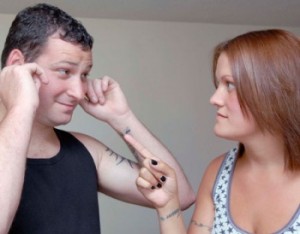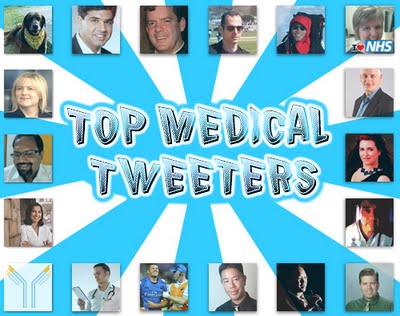
April 27th, 2011 by AnneHansonMD in Health Tips, Opinion
Tags: Legal Ramifications, Malpractice, Mental Illness, Patients Attack, Psychiatry, Self-Defense, Violence
No Comments »




 Sideways Shrink posed a great question recently in a comment on my post “When A Thick Skin Helps.” The question was whether or not physicians are allowed to hit a patient who tries to assault them.
Sideways Shrink posed a great question recently in a comment on my post “When A Thick Skin Helps.” The question was whether or not physicians are allowed to hit a patient who tries to assault them.
Certainly, physical assaults on patients are not the standard of practice in psychiatry or any other medical specialty. Psychiatrists do undergo some training about physical management of violent patients: I remember in residency we had to get trained in “take down” and restraint procedures. As a group we practiced applying pressure point joint locks on each other in order to make a patient break a grip on us, and to do two person restraints to hold someone immobile until security could arrive. None of this involved any “Crouching Tiger, Hidden Dragon”-type kung fu moves, there was no kicking or hitting or loud kiai karate yells. There was a lot of talk about the importance of being as least forceful as possible. Frankly, I’m not sure how much of that I would have remembered if I had ever been in a position to have to use it. The few times when I was actually assaulted by patients the incidents happened so fast there really wasn’t anything I could have done. (OK, so the little manic lady who hit me with a stuffed dog really couldn’t count as an assault, and she was already restrained in a geri-chair to begin with.)
But the real question is: will a doctor get into trouble for defending him or herself? Read more »
*This blog post was originally published at Shrink Rap*
April 27th, 2011 by Dr. Val Jones in Opinion, Primary Care Wednesdays, True Stories
Tags: High Cholesterol, Hypercholesterolemia, Internal Medicine, Obesity, Obesity Counseling, Primary Care, Weight Loss
No Comments »
 A friend of mine is in great physical shape but her husband (we’ll call him “Mr. B”) has gained 40 pounds since they were married five years ago. He also has familial hypercholesterolemia, and several of his relatives have had heart attacks at young ages. Mrs. B is distraught – she is worried about her husband’s health, and has tried to gently nudge him towards healthier eating habits and regular exercise (as well as taking a statin for his cholesterol). Unfortunately, the nudges were received as nagging, and a wedge has formed between them in their relationship.
A friend of mine is in great physical shape but her husband (we’ll call him “Mr. B”) has gained 40 pounds since they were married five years ago. He also has familial hypercholesterolemia, and several of his relatives have had heart attacks at young ages. Mrs. B is distraught – she is worried about her husband’s health, and has tried to gently nudge him towards healthier eating habits and regular exercise (as well as taking a statin for his cholesterol). Unfortunately, the nudges were received as nagging, and a wedge has formed between them in their relationship.
Last week my friend planned a trip to a primary care physician in the hopes that he would educate Mr. B about the dangers of being overweight and not treating his high cholesterol. “Surely Mr. B will listen to an expert” she thought, “then perhaps he’ll realize that he has to change his behavior.”
Unfortunately, the primary care physician didn’t offer any health counseling to Mr. B. Not only did he not mention that Mr. B should lose weight, but he didn’t provide any warnings about the dangers of untreated, very high cholesterol levels. He merely reported that Mr. B’s total cholesterol was 300, and that a statin was indicated.
Mrs. B was crestfallen. She was depending on the physician’s authoritative input to help her come up with a strategy to steer her husband towards better health. Now Mr. B was left with the impression that things were more-or-less ok, and that his wife’s concerns were exaggerated. Read more »
April 26th, 2011 by Bryan Vartabedian, M.D. in Opinion, Quackery Exposed, Research
Tags: Compliance, Fake, HIPAA, Hospital, Imposters, Policy, Social Media Experts, Social Media Policy, Twitter, Uncategorized
No Comments »

They’re here: Creeping researchers who see the opportunity that’s social media. Publications, position papers, professional guidelines and policies on social media are appearing faster than you can say ‘ARA grant opportunity.’ A simple search will show that some of these authors have little more than a token feel of what its like to be a doctor in the social space. And they’ve got just enough of a footprint to fool the editors. “They’ve actually got a Twitter account. They must know what they’re talking about.”
The next time you see a policy or a guideline coming from a society or medical professional organization, deep search its authors. Look to see if they have the experience and social scars to guide you as a professional. If you’re a professional society or journal, be sure to do the same. Thoroughly vetting the social media experience of authors should be part of peer review when it comes to medical research and policy generation in social media. Otherwise expect those who have never experienced social media to position themselves as the new voice of authority. Read more »
*This blog post was originally published at 33 Charts*
April 26th, 2011 by ChristopherChangMD in Opinion
Tags: Discoveries, ENT, Evolution, Knowledge, Medical, New Treatments, Otolaryngology, Public, Science
No Comments »

 I read with interest a blog post by Robert Krulwich of NPR fame on why there is so much public resistance to accept changes in truth with new scientific discoveries (some of which was new to even me)…
I read with interest a blog post by Robert Krulwich of NPR fame on why there is so much public resistance to accept changes in truth with new scientific discoveries (some of which was new to even me)…
1) Triceratops with their beautifully placed 3 horns is actually the teenage dinosaur version of the adult Torosaurus (who had ugly asymmetric horns). Now… a decision had to be made regarding which name to stick with. Ultimately, “Triceratops” won out, perhaps because of the “Save the Triceratops” Facebook page???
2) The same unfortunately is not true for the Brontosaurus. It was clear that Apatosaurus is the same dinosaur and as such, the “Brontosaurus” name is no more much to the dismay of many lay public… Read more »
*This blog post was originally published at Fauquier ENT Blog*
April 25th, 2011 by Berci in Opinion
Tags: Crowdsourcing, Health 2.0, healthcare, Immediate Feedback, Medicine, Medicine 2.0, Physicians, Reasons To Use Twitter, Social Media, Twitter, Web 2.0
No Comments »

 I’ve been building a medical community on Twitter for years and now I have about 6000 followers including doctors, medical students, patients, medical librarians, scientists, etc. Whenever I have a question about my profession, PhD, or social media, generally I receive a valid and relevant answer in minutes. I don’t always know who might have the answer for my questions, that’s why it can be beneficial to put that into a large pot full of people with similar interests and wait for the answer. There is always someone with an answer or there is always someone in the communities of my community who might have the final solution.
I’ve been building a medical community on Twitter for years and now I have about 6000 followers including doctors, medical students, patients, medical librarians, scientists, etc. Whenever I have a question about my profession, PhD, or social media, generally I receive a valid and relevant answer in minutes. I don’t always know who might have the answer for my questions, that’s why it can be beneficial to put that into a large pot full of people with similar interests and wait for the answer. There is always someone with an answer or there is always someone in the communities of my community who might have the final solution.
That’s why I use Twitter for everyday communication, even though my main platform is my still blog.
It’s an honor to be included in the world’s top 10 medical Twitter users’ list. Last year, I was selected by The Independent and later my Twitter story was mentioned in the New York Times. Although, I publish the core content of my activities on my blog instead of Twitter, but now that is the place to track interesting medical stories. According to Peer Index, I’m the 6th in a list of 1000 medical Twitterers. Read more »
*This blog post was originally published at ScienceRoll*

 Sideways Shrink posed a great question recently in a comment on my post “When A Thick Skin Helps.” The question was whether or not physicians are allowed to hit a patient who tries to assault them.
Sideways Shrink posed a great question recently in a comment on my post “When A Thick Skin Helps.” The question was whether or not physicians are allowed to hit a patient who tries to assault them.



 A friend of mine is in great physical shape but her husband (we’ll call him “Mr. B”) has gained 40 pounds since they were married five years ago. He also has familial hypercholesterolemia, and several of his relatives have had heart attacks at young ages. Mrs. B is distraught – she is worried about her husband’s health, and has tried to gently nudge him towards healthier eating habits and regular exercise (as well as taking a statin for his cholesterol). Unfortunately, the nudges were received as nagging, and a wedge has formed between them in their relationship.
A friend of mine is in great physical shape but her husband (we’ll call him “Mr. B”) has gained 40 pounds since they were married five years ago. He also has familial hypercholesterolemia, and several of his relatives have had heart attacks at young ages. Mrs. B is distraught – she is worried about her husband’s health, and has tried to gently nudge him towards healthier eating habits and regular exercise (as well as taking a statin for his cholesterol). Unfortunately, the nudges were received as nagging, and a wedge has formed between them in their relationship.












